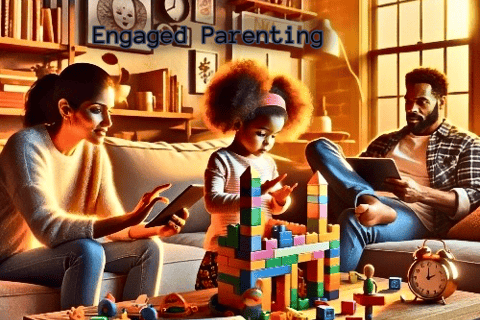Tough Questions Parents Must Ask About Their Children's Exposure
12/25/20232 min read
As parents, we have a responsibility to protect and nurture our children. In today's digital age, where information and media are readily accessible, it becomes crucial to ask ourselves tough questions about what we are exposing our children to and the image that is being cultivated through this exposure.
The Impact of Media Exposure on Children
The media plays a significant role in shaping our children's perceptions, values, and behaviors. From television shows and movies to social media platforms and video games, our children are constantly bombarded with various forms of media content. It is essential to consider the potential impact of this exposure on their development.
Research has shown that excessive exposure to violent or inappropriate content can lead to aggressive behavior, desensitization to violence, and the development of unhealthy attitudes and beliefs. Similarly, exposure to unrealistic body standards and harmful stereotypes can negatively impact children's self-esteem and body image.
Questions to Ask Ourselves
As parents, we must critically evaluate the media content our children consume. Here are some tough questions to ask ourselves:
1. What values and messages are being conveyed?
Consider the underlying messages portrayed in the media your children engage with. Are they promoting positive values such as empathy, kindness, and inclusivity? Or are they perpetuating harmful stereotypes, violence, or materialism? Reflecting on these values will help guide your choices in media consumption.
2. How does this content align with our family's beliefs?
Every family has its own set of values and beliefs. Consider whether the media content aligns with your family's principles. Does it promote respect for diversity, honesty, and critical thinking? Evaluating the compatibility between the media content and your family's values will help you make informed decisions.
3. Is the content age-appropriate?
Ensure that the media content your children are exposed to is suitable for their age and developmental stage. Age ratings and content warnings exist for a reason. Take the time to understand the content and assess whether it is appropriate for your child's emotional and cognitive development.
4. Are we fostering a healthy balance?
Consider the overall balance of media consumption in your child's life. Are they spending excessive amounts of time in front of screens? Encourage a healthy balance by promoting other activities such as outdoor play, reading, and social interactions.
5. Are we engaging in open conversations?
Encourage open and honest conversations with your children about the media content they consume. Ask them about their thoughts, feelings, and perceptions. This dialogue will not only help you understand their experiences but also enable you to provide guidance and address any concerns or misconceptions.
The Importance of Parental Guidance
While it may be challenging to navigate the vast media landscape, remember that you play a crucial role in shaping your child's media literacy and critical thinking skills. By actively engaging in their media consumption, setting boundaries, and providing guidance, you can help them navigate the complex world of media and make informed choices.
Ultimately, as parents, we must be proactive in asking ourselves tough questions about our children's exposure to media. By doing so, we can ensure that the content they consume aligns with our values, promotes their healthy development, and fosters a positive and inclusive worldview.




